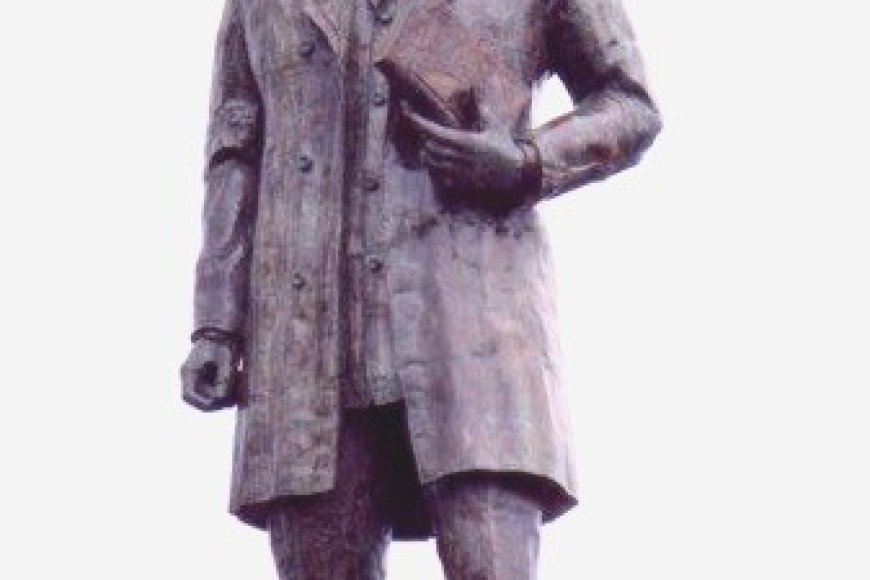Saturday, July 26, 2025 | 2 a.m.
“No Tax on Tips” took center stage Friday during a visit from the House of Representatives’ Ways and Means Committee to Las Vegas to promote President Donald Trump’s One Big Beautiful Bill.
While Republican committee members highlighted the bill’s tax cuts, local Democrats who attended the field hearing focused on the service and program cuts included in the GOP legislation. Trump signed the sweeping spending law earlier this month.
Committee Chairman Rep. Jason Smith, R-Mo., reminded the audience at Yesco sign company’s Las Vegas location that the city is the “birthplace” of Trump’s “No Tax on Tips” policy, which the president said came from a conversation with a local waitress. The policy caps deductions at $25,000 and will last four years.
“No tax on tips will translate to over $230 million back into the pockets of tipped workers in just the Las Vegas metro area,” Smith said. “That’s money that will be spent at local small businesses, restaurants and stores, helping both tipped workers … while simultaneously growing the Vegas economy.”
Nevada’s economy has faced significant challenges this year, as Democrats highlighted during remarks at the Culinary Union headquarters prior to the hearing. Las Vegas visitation numbers have consistently fallen short of 2024 levels, with not a single month in 2025 exceeding the previous year’s totals.
Rep. Steven Horsford, D-Nev., attributes these economic difficulties to presidential policies, arguing that any savings from eliminating taxes on tips would be more than offset by the additional costs imposed by the reconciliation bill.
“The tips and overtime provisions… are both limited and temporary, but you know what isn’t limited or temporary? The tax cuts for billionaires and big corporations,” Rep. Suzan DelBene, D-Wash., said before the hearing, referencing the extension of Trump’s 2017 tax cuts.
An analysis from the nonpartisan Tax Policy Center found that while it lowered taxes across income levels, it most benefited the top 5% of earners.
Factoring in changes to Medicaid and SNAP this time around, the Yale Budget Lab found a similar trend for the reconciliation bill, except that the bottom 20% of earners will see a 2.5% reduction in gross income.
While Smith and his fellow Republicans spent most of the hearing praising the bill, he shifted the blame for a controversial gambling tax change to the Senate GOP. Under its version of the bill, which the House agreed to, gamblers can only deduct up to 90% of their losses.
Rep. Dina Titus, D-Nev., has been pushing for legislation to reverse that change, arguing that it essentially taxes “phantom money.” If a person bet $100,000 and broke even, they’d still owe taxes on $10,000 worth of “winnings.”
Smith said both parties “are open to working to address it before it goes into effect.” He also framed the bill as a win for the working class, saying that President Joe Biden focused on subsidies for electric cars while the GOP bumped up the child tax credit.
“Instead of encouraging the flood of illegal immigrants that started under Democrats with public benefits, Republicans voted to secure the border and end Democrats’ handouts,” the chair said. “Illegal immigrants will no longer be eligible to receive Medicare paid for by the hard work of single moms waiting tables.”
However, even before the passage of the reconciliation plan, undocumented immigrants were “largely ineligible” for Medicare, according to the National Immigration Forum.
Most of the testimony at the Yesco site, outside of Nevada Senate Majority Leader Nicole Cannizzaro, D-Las Vegas, was in favor of Trump’s bill.
Patrick Wrona, a server at RPM Italian at the Forum Shops, called the “No Tax on Tips” policy a “gamechanger” for him and his wife. So did Boulder City DoorDash driver Sharon Simmons, who said she’d use the extra money to pay for medical care, groceries and family visits.
Austin Robinson, director of manufacturing at a Nevada fasteners company, also praised removing taxes on overtime and the bill’s support of private research and development initiatives.
“Benefits, training and pay increases all depend on a tax code that allows us to invest in ourselves and our employees,” Robinson said. The company operates “on thin margins, so a change in tax liability can make or break a small business such as ours.”
Cannizzaro focused on how the new legislation would affect health care, energy and food.
Along with the thousands of Nevadans who could lose Medicaid coverage, the reconciliation bill hampers the state’s ongoing clean energy transition. Citing an energy think tank, Cannizzaro said it’s projected to raise annual energy bills by $300 and “wreak havoc on our economy to the tune of several billions of dollars in GDP loss and thousands of jobs.”
She also lambasted cuts to SNAP, saying that overwhelmed agencies could mean thousands of people in the state losing access to food assistance.
“This isn’t just cruel, it’s shortsighted,” Cannizzaro said. “Because when a child goes to school hungry, or a senior skips meals to pay for prescriptions, the cost doesn’t vanish. It shows up in hospitals, in classrooms, and in community services down the line.”
[email protected] / 702-990-8923 / @Kyle_Chouinard
.png)








 English (US) ·
English (US) ·